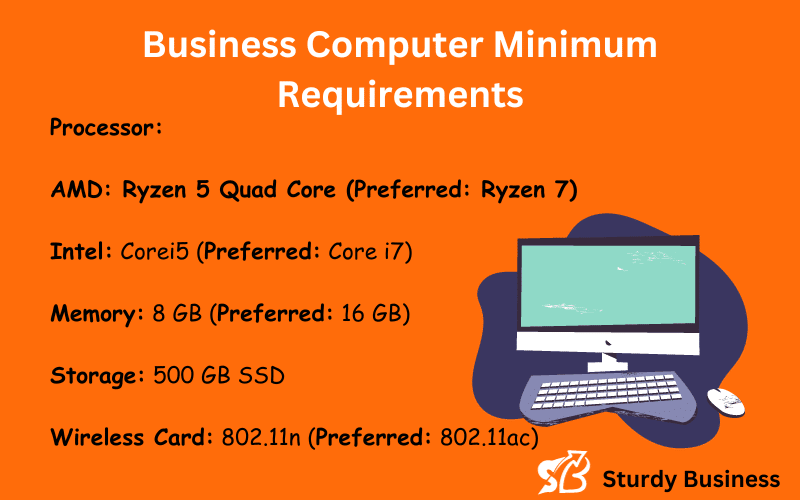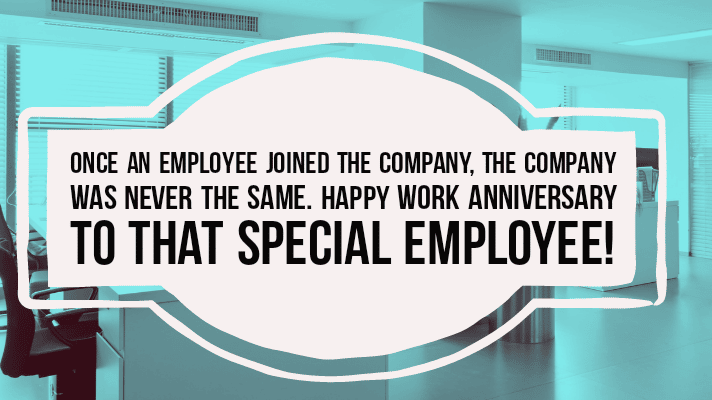In the ever-evolving landscape of business, technology plays a pivotal role in driving efficiency, productivity, and innovation. One of the cornerstones of this technological advancement is the array of computers that businesses rely on for their day-to-day operations.
From small startups to large multinational corporations, the types of computers used in business vary widely, each serving a specific purpose to ensure smooth functioning and success. In this blog post, we will delve into the diverse world of business computers and their applications.
Here are the specs they often use.
 |
| Credit: Sturdy Business |
- Desktop Computers: The Workhorse of the Office
Desktop computers are the most common and traditional type of computer found in business environments. They provide a powerful and stable platform for a variety of tasks, ranging from data entry and document processing to complex design and development work. These computers are often equipped with high-performance processors, ample RAM, and large storage capacities, making them ideal for tasks that demand significant computational power.
- Laptops: Unleashing Mobility and Flexibility
With the advent of remote work and the need for flexibility, laptops have become indispensable in the business world. They offer the same capabilities as desktop computers but with the added advantage of portability. Laptops enable employees to work from anywhere, fostering a more dynamic and adaptive work environment. Modern laptops are equipped with powerful processors, long-lasting batteries, and lightweight designs, catering to the needs of professionals on the move.
- Servers: Powering the Infrastructure Behind the Scenes
Behind every successful business, there is a robust IT infrastructure powered by servers. Servers are specialized computers designed to handle and manage network resources, hosting applications, databases, and websites. They ensure seamless communication, data storage, and backup solutions, contributing to the overall stability and reliability of a company's operations.
- Workstations: Engineered for Specialized Tasks
Certain industries require specialized computers known as workstations. These machines are designed for resource-intensive tasks such as graphic design, video editing, scientific simulations, and engineering applications. Workstations are equipped with high-end graphics cards, multiple processors, and vast amounts of RAM to handle the complex calculations and rendering required by these specialized fields.
- Thin Clients: Streamlining Operations with Centralized Computing
Thin clients are lightweight computers that rely on a central server for processing power and storage. These devices are particularly popular in environments where simplicity, security, and cost-effectiveness are priorities. Thin clients offer a streamlined approach to computing, allowing businesses to centralize control and management of software and data.
- Embedded Computers: The Invisible Powerhouses
Embedded computers are the unseen heroes of modern business operations. Integrated into various devices and systems, they control and monitor specific functions without being the primary focus. From point-of-sale systems in retail to industrial automation in manufacturing, embedded computers ensure that critical processes run smoothly.
Conclusion:
In the dynamic world of business, the types of computers used are as diverse as the industries they serve. From the stalwart desktops powering office spaces to the nimble laptops enabling remote work, and the specialized workstations catering to creative endeavors, each type of computer plays a crucial role in shaping the digital landscape of the corporate world. As technology continues to advance, businesses will undoubtedly leverage new computing solutions to enhance efficiency, foster innovation, and stay ahead in an ever-competitive global market.



